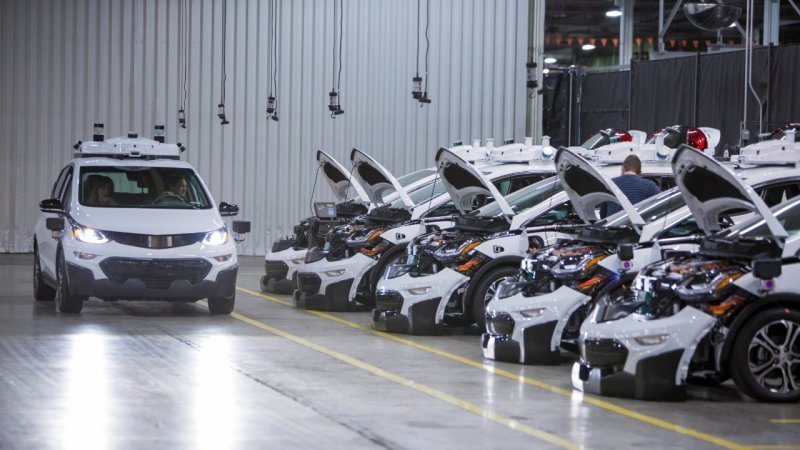EVs and autonomy may not be as harmonious as we think

It's been widely stated that electric vehicles lend themselves particularly well to autonomy. Especially in a future where private ownership is rarer and an autonomous vehicle spends the bulk of its time picking up and dropping off users (as opposed to sitting parked), an electric powertrain makes sense. It requires less maintenance, and finding a place to (wirelessly) recharge is safer and less complex than refueling at a gas station. Plus, computers might find an electric car easier to drive, and an EV can more easily power its electronics.
But EVs may not be the answer to automation, at least not yet, according to an article from Bloomberg titled, "Driverless Cars Are Giving Engineers a Fuel Economy Headache," which points out how the two technologies might not be as harmonious as we think.
According to BorgWarner, the amount of energy used to power the autonomous driving systems in today's prototypes is equivalent to that of running 50 to 100 laptops. Processing data from the numerous sensors required for a car to drive itself might just be too great for a car running solely on battery power, especially if the first applications will be in robotaxis.
That's why Delphi Automotive's powertrain CTO Mary Gustanski and Cairn Energy Research Advisors founder Sam Jaffe believe hybrids will make more sense. Autonomous taxis are "going to favor plug-in hybrid EVs," says Jaffe, "and they're going to require that extra gasoline engine, both to extend the range to be able to do a taxi type of duty cycle, but also to help mitigate the proportion of the autonomous systems on the battery pack itself."
Ford's president of global markets, Jim Farley, agrees, telling investors that BEVs are "really restrictive for your business," and that hybrids are "the right tech to start with."
Still, we're in the early days of autonomous driving, and the technology will only improve and become more efficient (as will EV battery technology). When that happens, fully electric autonomous cars will make more sense. For now, though, they're not the ideal fit.
Related News
